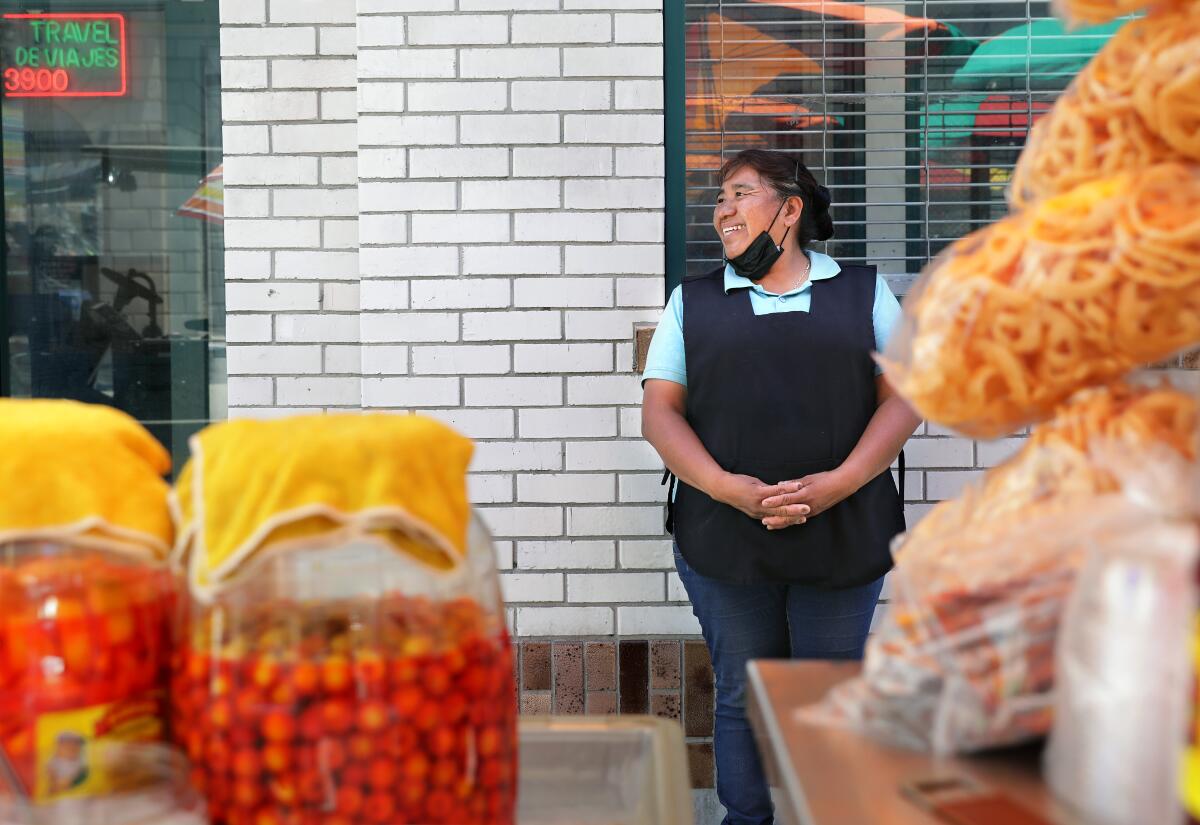Attacks on street vendors should be charged as hate crimes, Santa Ana councilman says

In what would be a first for California, Santa Ana city officials considered Tuesday whether they can classify attacks against street vendors as hate crimes, which could offer additional safeguards for vendors in the predominantly Latino city.
Councilman Jonathan Ryan Hernandez, 29, said that he’s noticed an increase in attacks against street vendors and that viral videos seem to show a pattern of verbal and physical assaults with an undercurrent of anti-Latino racism.
“These aren’t robberies. These people are not having their food stolen; they’re not having their shopping carts taken from them,” Hernandez said. “They’re getting beaten up and spit at, and then these people are walking away.”
Hernandez introduced the proposal at Tuesday’s regular City Council meeting, where council members discussed whether such a rule would be possible.
“I believe this is an issue of discrimination,” Hernandez said. “Let’s call it what it is. It’s racism.”
The council members and Mayor Vicente Sarmiento were supportive of acting to protect vendors, but some said they were concerned that vendors can’t be considered a protected class under state law.
Sarmiento and council members Thai Viet Phan and David Penaloza said they wanted city staff to look into whether a hate crime enhancement for attacks on street vendors would be enforceable if enacted.
“I would hate to adopt something that would have to be repealed,” the mayor said.
The matter will be sent to city staff for further research. No vote was held Tuesday night.
Hernandez, whose family is from Jalisco, Guadalajara, in Mexico, said there is not enough support for street vendors and the immigrant community in Santa Ana. He wants to change that with his proposal.
Genwa, where a plate of galbi costs around $75, is reportedly the first Korean barbecue restaurant in the country to unionize.
“We’re in their corner,” Hernandez said. “They’re not alone. And for anybody who thinks that disrespecting street vendors is acceptable, we’re looking to hold them accountable.”
Hernandez said he hopes his proposal could be a model for other jurisdictions across California. Elsewhere in the region, cities including Anaheim and Santa Monica have cracked down on street vending, blocking unpermitted vendors from selling in certain areas.
The Orange County district attorney’s office and the Santa Ana Police Department did not immediately respond to requests for comment about attacks against street vendors or whether there has been an increase in reported assaults on Latino residents.
Last year, Cudahy resident Edin Enamorado armed Los Angeles street vendors with pepper spray, Tasers and in some instances personal security after a string of attacks in Long Beach, as reported by L.A. Taco.
The order, which could go into effect as soon as July 29, has raised concerns among business groups and sparked questions about its necessity.
Senior organizer Sergio Jimenez of the Community Power Collective’s Street Vendor Justice program said more recorded attacks against street vendors may be going viral, but it’s mainly because street vendors are taking back some agency and recording their attackers.
Many street vendors are undocumented, monolingual businesspeople who might not be familiar with their 1st Amendment rights in the United States, Jimenez said. He’s hopeful that support from law enforcement and educating street vendors on their rights can go a long way to building a safer community.
“A lot of it has to do with outreach, education and raising the social consciousness,” Jimenez said. “What we’re telling them is, ‘Hey, you know what? You got to record these things, step away and record and narrate everything that’s happening to retell your particular point of view.’”
Times staff writer Gregory Yee contributed to this report.
More to Read
Start your day right
Sign up for Essential California for news, features and recommendations from the L.A. Times and beyond in your inbox six days a week.
You may occasionally receive promotional content from the Los Angeles Times.









